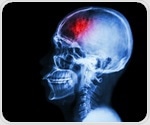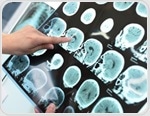| |  Studies have shown that sleep apnea is related to an increased risk of dementia. A new study looks at the relationship between sleep apnea and brain volume. Studies have shown that sleep apnea is related to an increased risk of dementia. A new study looks at the relationship between sleep apnea and brain volume. | |
|
| |  A new study investigated the link between SDB severity and the volume of medial temporal lobe (MTL) substructures. In addition, it also evaluated the association between SDB and MTL subregions volumes with episodic memory performance. A new study investigated the link between SDB severity and the volume of medial temporal lobe (MTL) substructures. In addition, it also evaluated the association between SDB and MTL subregions volumes with episodic memory performance. | |
|
| |  Researchers explored strategies for enhancing compliance with a Mediterranean ketogenic nutrition program among older individuals. Researchers explored strategies for enhancing compliance with a Mediterranean ketogenic nutrition program among older individuals. | |
|
| |  Alzheimer disease (AD), the most common neurodegenerative disorder in the world, affects individuals of all races and ethnicities; however, most genetic research for AD has been performed on individuals of European ancestry (EA) with a limited number of large-scale genetic studies in other populations. Alzheimer disease (AD), the most common neurodegenerative disorder in the world, affects individuals of all races and ethnicities; however, most genetic research for AD has been performed on individuals of European ancestry (EA) with a limited number of large-scale genetic studies in other populations. | |
|
| |  About two-thirds of the risk for Alzheimer's disease (AD) is thought to arise from genetic influences, but about a third could be influenced by environment and lifestyle, opening the door for behavioral interventions that could delay or prevent pathophysiological changes that occur with AD. About two-thirds of the risk for Alzheimer's disease (AD) is thought to arise from genetic influences, but about a third could be influenced by environment and lifestyle, opening the door for behavioral interventions that could delay or prevent pathophysiological changes that occur with AD. | |
|
| |  Damage to the brains of patients operated on for brain tumors may be assessed by measuring biomarkers in the blood pre- and postoperatively. Damage to the brains of patients operated on for brain tumors may be assessed by measuring biomarkers in the blood pre- and postoperatively. | |
|
| |  Evidence supports a close link between Aβ, astrocyte reactivity, and tau pathology in preclinical AD. Evidence supports a close link between Aβ, astrocyte reactivity, and tau pathology in preclinical AD. | |
|
| |  Low sexual satisfaction in middle age may serve as an early warning sign for future cognitive decline, according to a new study led by Penn State researchers. Low sexual satisfaction in middle age may serve as an early warning sign for future cognitive decline, according to a new study led by Penn State researchers. | |
|
| |  New study quantifies the impact of hypertension on dementia risk, revealing the proportion of cases that could be prevented globally, regionally, and nationally. Key insights for effective dementia prevention strategies. New study quantifies the impact of hypertension on dementia risk, revealing the proportion of cases that could be prevented globally, regionally, and nationally. Key insights for effective dementia prevention strategies. | |
|
| |  Our skin contains specialized long-lived killer cells that protect against intruders. Researchers at Karolinska Institutet in Sweden and the University of Copenhagen in Denmark have now identified how these cells are formed, and shown that high levels of memory killer cells in cancer tissue correlate with a better survival rate in people with melanoma. Our skin contains specialized long-lived killer cells that protect against intruders. Researchers at Karolinska Institutet in Sweden and the University of Copenhagen in Denmark have now identified how these cells are formed, and shown that high levels of memory killer cells in cancer tissue correlate with a better survival rate in people with melanoma. | |
|
| |  The need to prioritize mental health is more obvious than ever, and large and small companies have responded by accelerating innovation in this area. The need to prioritize mental health is more obvious than ever, and large and small companies have responded by accelerating innovation in this area. | |
|
| |  A new research paper was published on the cover of Aging (listed by MEDLINE/PubMed as "Aging (Albany NY)" and "Aging-US" by Web of Science) Volume 15, Issue 10, entitled, "Stress granules sequester Alzheimer's disease-associated gene transcripts and regulate disease-related neuronal proteostasis." A new research paper was published on the cover of Aging (listed by MEDLINE/PubMed as "Aging (Albany NY)" and "Aging-US" by Web of Science) Volume 15, Issue 10, entitled, "Stress granules sequester Alzheimer's disease-associated gene transcripts and regulate disease-related neuronal proteostasis." | |
|
| |  The research, published in the journal Alzheimer's & Dementia, is further evidence that the menopause transition is a particularly important time for women and their doctors to pay attention to heart health, in turn protecting their brain health. The research, published in the journal Alzheimer's & Dementia, is further evidence that the menopause transition is a particularly important time for women and their doctors to pay attention to heart health, in turn protecting their brain health. | |
|
| |  In 2021, lanthanide-doped nanoparticles made waves—or rather, an avalanche—when Changwan Lee, then a PhD student in Jim Schuck’s lab at Columbia Engineering, set off an extreme light-producing chain reaction from ultrasmall crystals developed at the Molecular Foundry at Berkeley Lab. In 2021, lanthanide-doped nanoparticles made waves—or rather, an avalanche—when Changwan Lee, then a PhD student in Jim Schuck’s lab at Columbia Engineering, set off an extreme light-producing chain reaction from ultrasmall crystals developed at the Molecular Foundry at Berkeley Lab. | |
|
| |  Why do some people develop Alzheimer's disease while others don't? And, even more puzzlingly, why do many individuals whose brains are chock-full of toxic amyloid aggregates-;a telltale sign of Alzheimer's brain pathology-;never go on to develop Alzheimer's-associated dementias? Why do some people develop Alzheimer's disease while others don't? And, even more puzzlingly, why do many individuals whose brains are chock-full of toxic amyloid aggregates-;a telltale sign of Alzheimer's brain pathology-;never go on to develop Alzheimer's-associated dementias? | |